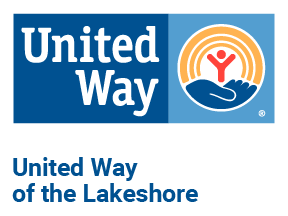The challenge will begin on February 7th and run until February 28th.
Click here to jump down to our archive of the days!
THE EQUITY CHALLENGE – A SELF-GUIDED LEARNING JOURNEY
Food Solutions New England developed the Equity Challenge, United Way of Washtenaw County successfully implemented the challenge, engaging over 5,000 participants in January this year. Now United Ways statewide plan to implement an Equity Challenge. The Equity Challenge is an interactive digital resource for individuals to take it upon themselves to deepen their understanding of, and willingness to confront racism.
What happens during the Challenge?
For 21 days, participants receive an email “prompt” with a short reading, video or audio file. Participants are encouraged to take about ten to fifteen minutes each day with the material in the prompt, though extra resources are provided in case they want to dig further into the day’s topic.
What types of topics do the daily prompts cover?
- Personal Racial Identity
- Personal Reflection & Implicit Bias
- What is Privilege?
- What is White Fragility?
- Trauma to Healing
- Levels of Racism
- Opportunity in Michigan
- Segregation in Michigan
- Housing Affordability & Homelessness
- Healthcare & Health Outcomes
- Environmental Justice
- The Wealth Gap & Financial Stability
- Early Childhood
- Education & School-aged Children
- Adverse Childhood Experiences
- Equity & the LGBTQI+ Community
- Building a Race Equity Culture
- Being an Ally
- Tools for the Racial Equity Change Process
- Final Reflections
- Take Action in Your Community
ALICE DATA:
Financial Hardship In Black Households
Poverty and racism have been inextricably connected since this country’s inception, yet official federal statistics have never fully portrayed the economic impact of that link. United For ALICE was founded on the need to more accurately measure and track financial hardship nationwide. For more than a decade, our research has been shedding light on the disparity of economic opportunity that exists in every community, in every state. The data show that while hardship is pervasive, the history of slavery and its ongoing legacy of systemic and institutional racism stigmatizes Black households uniquely. In every state, our research unequivocally documents the persistent and widening disparities in income and wealth between Black households and households of other races and ethnicities.
United For ALICE data show that more than 40% of American households do not earn enough to cover basic expenses, including housing, child care, food, transportation, health care, and a basic smartphone plan. This is a structural economic problem; wages are not keeping pace with increases in the cost of living. But for Black households, those numbers are far higher. Our analysis of the real cost of living in every U.S. county shows that 60% of Black households are unable to afford basic household essentials in their communities. This is three times the rate of hardship shown for Black households by the antiquated and arbitrary Federal Poverty Level (FPL). And it is nearly double the rate of hardship for White households.
KNOW THE FACTS
United For ALICE will continue to provide the data needed to recognize and upend racial barriers to financial stability and reform institutional bias. The coronavirus pandemic has thrown our broad, systemic failures of economic and racial justice into even sharper relief; going back to pre-COVID-19 norms will not produce a sustainable or growing economy. By more accurately identifying need, the ALICE measures can guide better policies and practices to help families and communities thrive. We know that:
- Racial and ethnic disparities in hardship are growing, not shrinking. From 2010 to 2018 — which covers the “recovery” from the Great Recession — the number of Black households below the ALICE Threshold (the minimum income needed to afford household basics) increased by 12%, while the number of White households struggling to make ends meet barely changed, increasing only 2%.
- Black families continue to have persistently lower wages, fewer educational and job opportunities, poorer health, and lower life expectancy. Structural racism and discrimination continue to restrict job opportunities and wage levels for Black workers. Even when controlling for age, gender, education, and region, Black workers are paid 16% less than White workers (up from 10% in 2000).i This disparity directly impacts quality of life for Black households and communities. Black families remain disproportionately likely to live in substandard housing in neighborhoods of concentrated poverty — those with few grocery stores, banks, parks, or recreation facilities, with inadequate health care and under-resourced public schools, and with high levels of violence and exposure to environmental hazards.
- Black households continue to be less able to accumulate and pass on wealth. Like disparities in income disparities in wealth and assets persist for Black households. Unable to save, many Black families do not have the means to build assets, let alone catch up to those who have been building assets for generations. The discrimination that these families face in areas from hiring to housing to lending, when compounded, creates an even bigger wealth gap.
- Black households are at greater risk from COVID-19. Black people are contracting COVID-19 at higher rates and dying at higher rates than their White counterparts. These disparities are being fed by multiple factors — including more Black workers in “essential” jobs that require on-site, frontline presence with a higher risk of exposure, and historically poorer access to quality health care for Black communities.
United Way of the Lakeshore's Equity Statement:
We commit to developing racially conscious partnerships and processes that anticipate unintended outcomes and ensure the inclusion of all people we serve, for our community, and our organization.
Archive:
Day 1: Personal Racial Identity
Day 2: Understanding & Reflecting on Our Bias
Day 4: Talking about race is challenging for some. Here's why.
Day 7: Opportunity in Michigan
Day 8: Segregation in Michigan
Day 10: How Your Race Affects Your Health
Day 12: The Wealth Gap & Financial Stability
Day 13: Behind the Starting Line - Racialized Outcomes in Early Childhood
Day 14: Education & School-Aged Children
Day 15: Adverse Childhood Experiences
Day 16: Equity & the LGBTQI+ Community
Day 17: Building a Race Equity Culture

